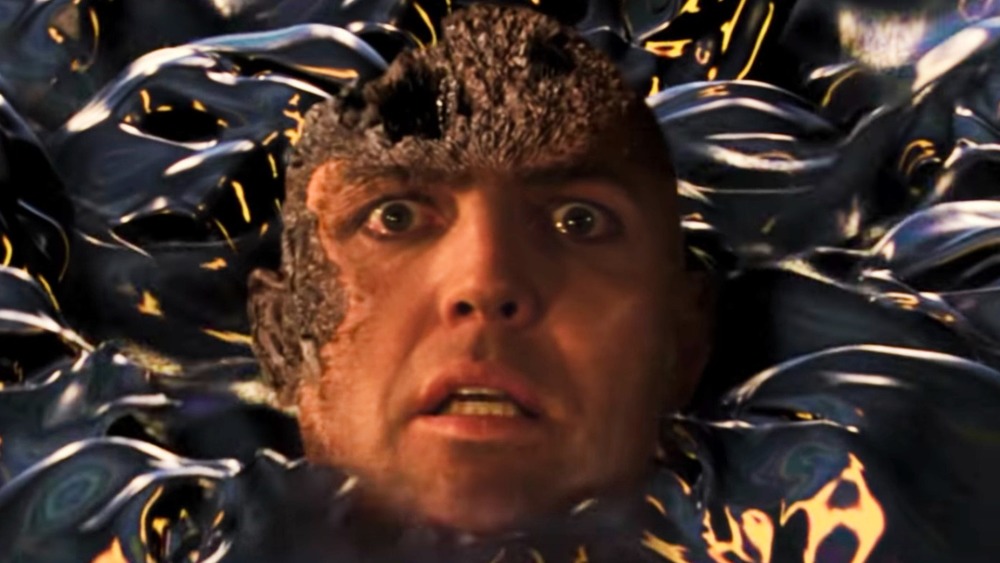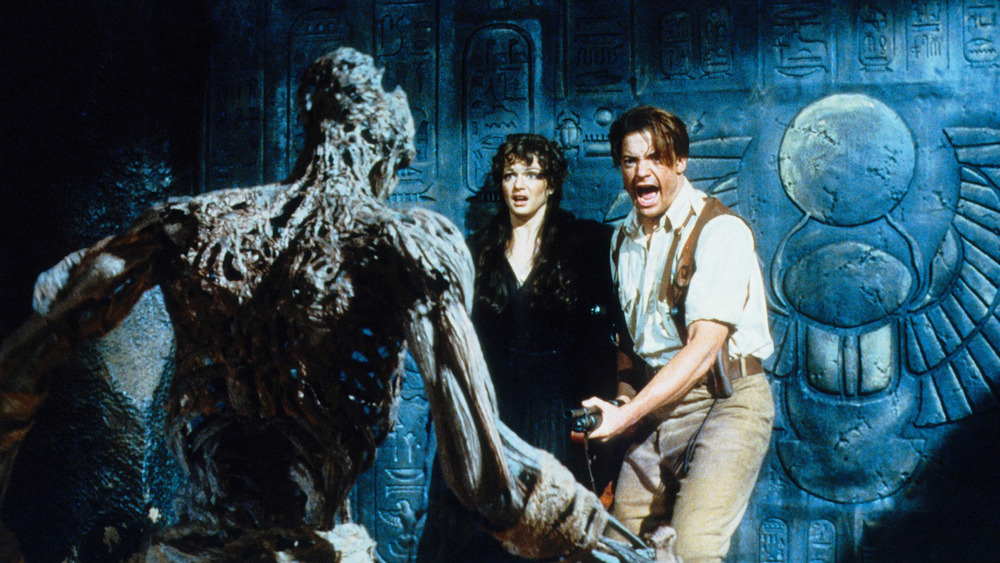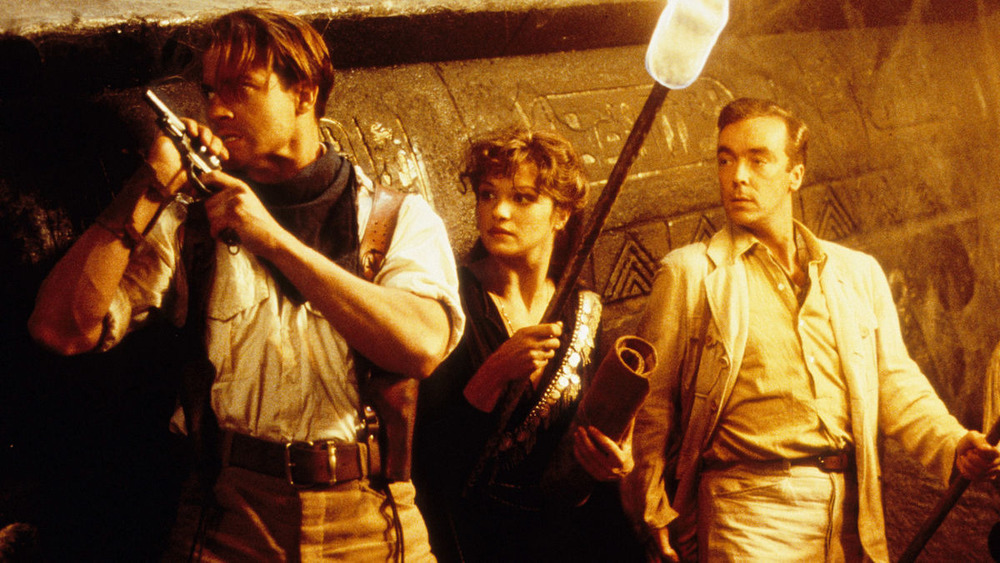The Underrated Adventure Film Series You Can Binge On HBO Max Right Now
If you prefer movies about the undead rising with a vengeance to have a historical twist — you know, for educational purposes — HBO Max has your movie-watching plans all, ahem, wrapped up. You can now stream 1999's The Mummy and its 2001 sequel The Mummy Returns, as well as prequel The Scorpion King, on HBO Max.
Astute Mummy aficionados will recall that there was actually a third movie in the original Mummy franchise: Tomb of the Dragon Emperor came out in 2008. However, HBO — like many fans — seems to have blanked that from memory. Although Dragon Emperor introduced legendary actors and martial artists Jet Li and Michelle Yeoh to the cast, Maria Bello replaced Rachel Weisz. Apparently audience members could get past the whole undead thing, but struggled to accept the replacement of one half of the Rick/Evelyn relationship.
HBO has also conveniently overlooked the fact Scorpion King has more sequels (four) than Jaws (three). And there's no mention of the 2017 Tom Cruise-starring remake: There's a reason The Mummy flopped at the box office.
So think of this as a curated selection of Mummy movies. Here's a refresher on the original trio, and whether it's worth a re-watch.
The Mummy is a tribute to early monster movies
The concept of a long-dead corpse returning after an especially nasty death to conduct unfinished business and exact revenge upon the living is, unsurprisingly, pretty old. Possibly as old as mummies themselves (that's the curse of the pharaohs explained) but at least as old as the 1920s, when Europeans started digging them up.
As Stephen Sommers, director of the first two Mummy movies, explained to Entertainment Weekly, The Mummy of 1999 was a tribute to its studio Universal Pictures' monster movies of the early 1930s. Think Dracula, Frankenstein and, of course, 1932's The Mummy.
This original movie starred Boris Karloff (who is most famous for playing Frankenstein's monster) as an Egyptian priest named Imhotep, who was buried alive in a cursed casket for trying to resurrect his lover, the princess Anck-su-namun (Zita Johann). Accidentally unleashed in 1921 by archaeologists, Imhotep starts pursuing a living woman (also played by Johann) whose body he hopes to use as a vessel for Anck-su-namun's spirit.
This is also the basic plot of 1999's The Mummy. The main difference is that Imhotep's would-be spirit vessel Evelyn (Rachel Weisz) is now a librarian, one with an irresponsible but charming brother named Jonathan (John Hannah) and a dashing adventurer/grave robber love interest, Rick (Brendan Fraser). By the second movie, Rick and Evelyn have a child, Alex (Freddie Boath), who shares his parents' adventurous tendencies and fascination with Ancient Egypt. That movie throws in a new villain, the Scorpion King, played by Dwayne "the Rock" Johnson, who reprised the character for his first leading role in backstory-revealing prequel The Scorpion King.
So yes, The Mummy is based on a long history of Western movies about Ancient Egypt, but it also breathed new life into the myths.
Is The Mummy as good as you remember?
If you spent The Mummy's two hours and five minutes of runtime on the edge of your seat or watching through your fingers as a kid, you'll probably still enjoy it. The effects stand up when you remember that this movie is over two decades old and predates the Lord of the Rings franchise. Plus the frenetic pace of the plot still makes time to show off the lead actors' comic timing, chemistry, and charisma, especially Fraser. This was a revelation then and led to a shift in the genre: basically, The Mummy changed action movies and nobody noticed.
One area that's problematic through the lens of the 2020s is the racial dynamic. Arnold Vosloo, who played Imhotep, told Entertainment Weekly, "If it were happening today, would I get the part? I mean, here I am — white, South African. They'd probably cast a real Egyptian." British-Iranian actor Omid Djalili, who stole all his scenes as the prison warden-turned-archaeological dig investor, explained that it was his idea to make his character funny. He told Sommers: "'What you've written is not even one-dimensional. I can possibly get this to a two-dimensional stereotype... The only way I can do this without being lynched by my own people is to make it slightly humorous.'"
Like many products of the past, The Mummy franchise is a relic of a time when movie fans were perfectly okay with things we would hopefully change now. But if you're prepared to accept its flaws as lessons from a less enlightened time, there's still a lot to enjoy about the mother of all mummy movies and its offshoots.


